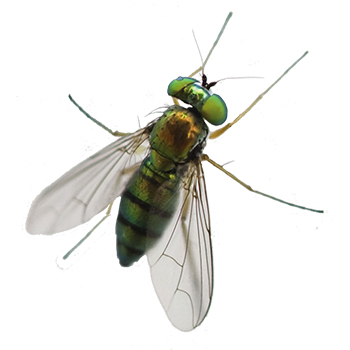Pest Control for Flies and Drain Flies

Those living in New Jersey, Pennsylvania, Maryland, and Delaware don’t need to be told that flies are a nuisance pest requiring constant monitoring and control. With over 50 different species of flies in the northeast, finding the best way to get rid of flies can be challenging and may require the help of pest control experts like Viking Pest. To protect your home or business from flies, you need to learn about the behavior of this pest, take steps for prevention, and find effective treatment options should an infestation occur.
What Are Flies?
Flies are six-legged insects inhabiting all corners of the globe, including the New Jersey, Pennsylvania, Maryland, and Delaware areas. Capable of flight, the fly’s purpose in the world is as a vital food source for larger animals, an assistant in the decomposition process, and a plant-pollinator. While these are significant, flies can also cause negative issues around your NJ, PA, MD, or DE home or business requiring the need for fly control.
How Do I Identify Flies?
Viking Pest’s certified entomologist, Craig, explains flies are small, winged insects with abnormally large eyes and a mobile head with the ability to rotate. With over 50 different fly species located throughout NJ, PA, MD, and DE call the pest control experts at Viking Pest as out certified pest management professionals will be able to identify the specific species.
How Do I Get Flies?
Flies can be attracted to food, garbage, clutter, and even some plants. The pest control experts at Viking Pest explain plants that expel particular odors, produce pollen, or are pale and dull in color are most likely to attract these pests to the property around or inside your NJ, PA, MD, or DE business or home. Plants part of the dogbane and milkweed family, native to the northeastern United States, are particularly popular fly attractants.
What Are The Effects Of Flies In and Around My Home or Business?
Outside of the annoying buzzing, flies can cause significant problems around your NJ, PA, MD, or DE home or business. Exterminators at Viking Pest explain one of the most dangerous risks of a fly infestation is the carrying of illnesses and diseases. Flies can transport at least 65 different diseases on their bodies, including food poisoning, dysentery, and parasitic worms. Additionally, some flies like the horse fly, pack a painful bite you, your family, and your customers do not want.
How Long Do Flies Live?
The lifespan of a fly depends on the type of fly, but for most, it is between 15 days and 30 days. The average lifespan of the common housefly is 28 days as stated by Craig, Viking Pest’s certified entomologist.
How Do I Prevent Flies?
Fly prevention is a multi-step approach that includes the help of pest control experts. Female flies can lay five to six batches of 75 to 100 eggs each, which can hatch in as little as 12 hours. Because of this, it’s important to get rid of flies as quickly and efficiently as possible. Pest control experts at Viking Pest recommend limiting exposed food, garbage, and other fly attractants around your home or business will also help to limit the potential problems.















